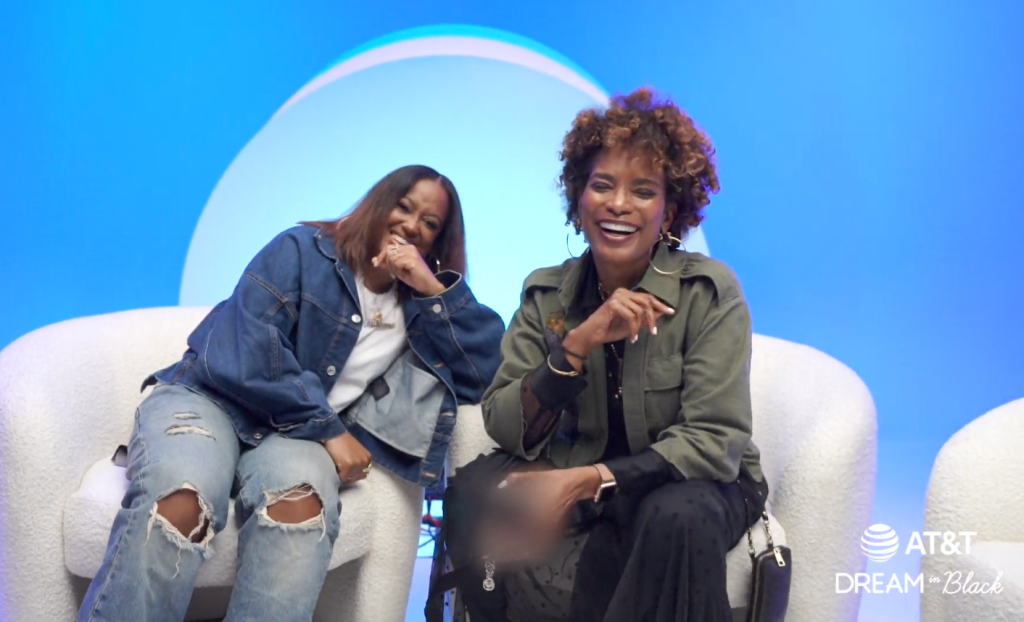Trending
Source: iOne / iOne
In celebration of hip-hop’s 50th anniversary, AT&T Dream in Black gathered a diverse panel of artists and unique voices to discuss the genre’s global impact and the importance of connection in moving the culture forward.
The AT&T Dream in Black platform celebrates the achievements and aspirations of the Black community, rooted in the mindset that success can look like anything we can dream.
Host and celebrated lyricist Rapsody is joined by Bronx legend Fat Joe, artist King Combs, and Rayna Bass, co-president of 300 Entertainment, to talk about the evolution of hip-hop.
As we celebrate hip-hop’s golden anniversary, the genre’s global impact on music, style and culture is undeniable. “I remember when I first got into hip-hop. It gave me a voice, it gave me style, it was something I could relate to,” says Rapsody.
The internet and social media have transformed the landscape and changed how artists reach audiences today. “You gotta do the groundwork, you gotta go to the station, you gotta meet the fans, you gotta thank the DJs—but you also can’t really be successful without having that presence on the internet,” says Bass. “Every big record in the last 10 years had some sort of viral moment.”
Hip-hop was born in the Bronx, New York, on August 11, 1973—as immortalized by the handwritten invitation to DJ Kool Herc’s “Back To School Jam.” Ladies paid 25 cents to get in. Fifty cents for the fellas.
Today, hip-hop is a multi-billion dollar industry. “The biggest thing is hip-hop’s influence,” says rapper Fat Joe, who lists artists-turned-moguls like 50 Cent, Diddy and Jay-Z who developed their careers into lucrative business enterprises.
“We have somebody to aspire to be,” he adds. “So when I see my brothers who come up from nothing and become billionaires, I just know that the next generation is going to be so much brighter, so much better.”
AT&T Dream in Black celebrates the culture and the creators who are shaping it. Marking 50 years of hip-hop, the panel shares what “Dream in Black” means to them.
“Another 50 years of excellence. More entrepreneurs, more billionaires coming from hip-hop,” says Bass.
“I want to see more success and I want to see more people give back to the community,” says Joe. “Don’t forget your people who made you.”
“Stay true to yourself and stay on your path,” says Combs, son of entertainment mogul and Bad Boy Records founder, Sean ‘Diddy’ Combs. “Everybody has different paths. People may blow up before you, but you can’t let that discourage you. Because you may be the person that changes the game in a bigger way.”
Rapsody closes out the discussion with her own vision. “Dream in Black means continuing to show up as myself, continuing to open doors, especially for more women in hip-hop to show up and tell their authentic story,” she says.
AT&T Dream In Black Celebrates 50 Years of Hip-Hop was originally published on hiphopwired.com
Kelly Rowland Breaks The Internet In A Sheer Brown Dress
RICO Defendant And Black Voices For Trump Leader Foolishly Mocks, Taunts Fani Willis: ‘Stop Chasing Clout’
Jada Pinkett Smith Reveals She and Will Smith Have Been Separated Since 2016
Jada Pinkett Smith Reveals What Chris Rock Said to Her Backstage After the Will Smith Oscars Slap
Rest In Power: Notable Black Folks Who We’ve Lost In 2023
Terrell Owens Explains How Colorism He Faced Led To Him Dating White Women, Social Media Has Thoughts
Kanye West Reportedly Ordered Wife Bianca Censori To “Never Speak” & Other Bizarre Rules
Ciara Shows Off Her Baby Bump During A Date Night With Hubby Russell Wilson

